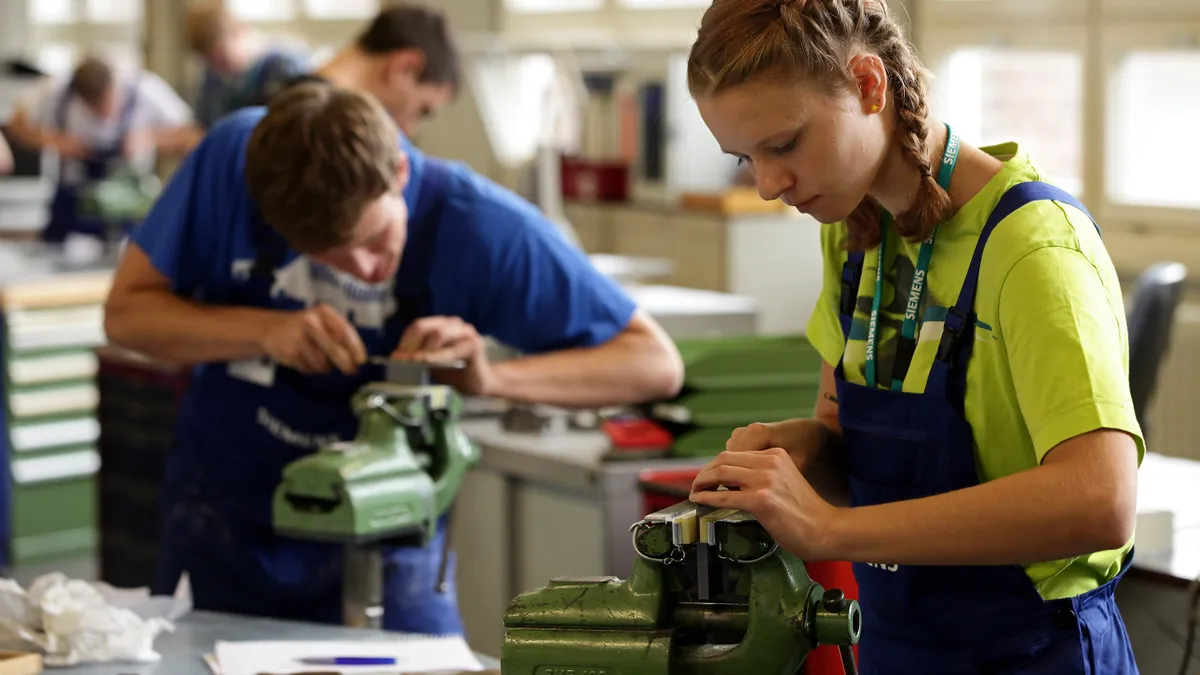Dive Brief:
-
Community partners can play a significant role in career and technical education programs by hiring students for internships and jobs, allowing them to test future careers and learning paths while providing an added benefit for local businesses.
-
Shani Watkins, director of West Sound Technical Skills Center, a 10-school-district educational cooperative in Washington state, said students who get work experience through employers in local industries may choose to stay, helping to boost a community's economy.
-
“We’re providing [local businesses] with trained employees who not only want to work, but are prepared to take on what’s required,” said Watkins, whose 11th- and 12th-grade students spend half a day at the learning center developing skills ranging from electrical systems to nursing. “And people stay if they’re exposed to something positive, helping the community thrive.”
Dive Insight:
Career and technical education programs can boost a student’s long-term work options. Community partners can open the door to future job possibilities for students, from helping them develop construction skills while constructing affordable homes for people in their area to learning how to build ships.
But these opportunities can also support local businesses that choose to hire and mentor pupils, as they can produce more trained and experienced workers right from their community.
“We tried for three years to get an HVAC program because our partners said they were struggling to fill positions and had more work than they could handle,” said Watkins, the 2022 Association for Career and Technical Education National Administrator of the Year. That program is set to start in the coming year.
The process of linking students to businesses often starts by asking companies how they may want to help, as some do not always know where to start. Watkins will ask businesses if they will host a student tour at their site, or if they have internship or work opportunities. Representatives from local industries are also invited to the campus every year for a two-day event where students can learn about available work opportunities from culinary programs to the Coast Guard.
Watkins said not all businesses that want to hire for internships and apprenticeships can pay students — a crucial element for many pupils, especially those who may need to turn down an internship for a job that helps pay bills for their family. Watkins recently went to Washington, D.C., to speak about how businesses need support to offer these hands-on learning and working opportunities to students.
“There should be incentives and rewards to offer real-world work site experiences for students,” Watkins said. “Businesses gain an employee who is prepared, but they need to be able to afford them and offer paid internships.”












